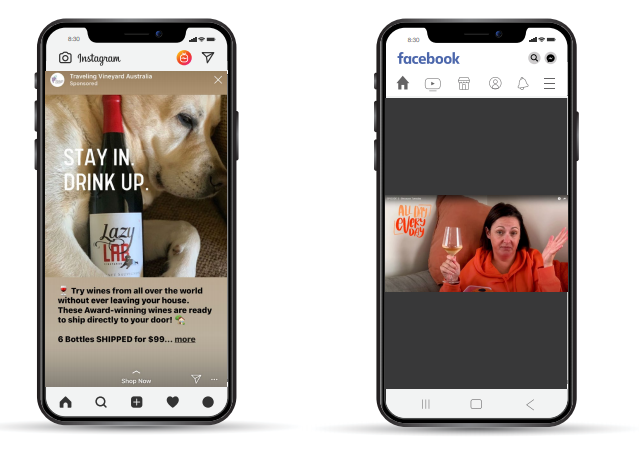Alcohol advertising watchdog hits back after attack on lockdown booze promotions
The industry body overseeing alcohol advertising has been branded ineffective and self-serving amid accusations that marketers have exploited the COVID pandemic to sell more product.
In a withering attack, Cancer Council Victoria claimed the Alcohol Beverages Advertising Code (ABAC) was ignoring the dangers of excessive drinking and allowing brands to treat the pandemic ‘like Christmas’.

Cancer Council said complaints about ads from Travelling Vineyard Australia (left) and BWS were dismissed

